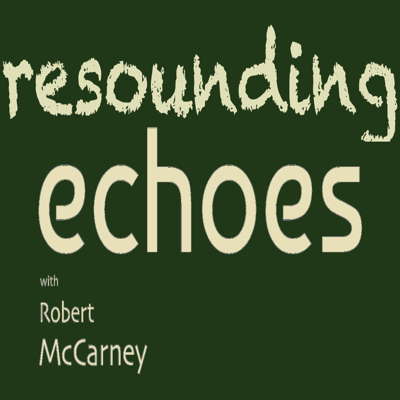- David Epstein
- Joseph Hu
- Divine Art Recordings
- Broadway
- Michal Karski
- Stewart Laing
- Curtis Symphony Orchestra
- Celia Craig
 VIDEO PODCAST: John Dante Prevedini leads a discussion about Classical Music and Artificial Intelligence, including contributions from George Coulouris, Michael Stephen Brown, April Fredrick, Adrian Rumson and David Rain.
VIDEO PODCAST: John Dante Prevedini leads a discussion about Classical Music and Artificial Intelligence, including contributions from George Coulouris, Michael Stephen Brown, April Fredrick, Adrian Rumson and David Rain.
 RESOUNDING ECHOES: Beginning in 2022, Robert McCarney's occasional series features little-known twentieth century classical composers.
RESOUNDING ECHOES: Beginning in 2022, Robert McCarney's occasional series features little-known twentieth century classical composers.
William Grant Still
American composer William Grant Still was born in Woodville, Mississippi on 11 May 1895 into a family of teachers. He grew up in Little Rock, Arkansas, studied the violin and taught himself to play cello, clarinet, double bass, oboe, saxophone and viola. Later he studied at Oberlin Conservatory and privately with Varèse and George Whitefield Chadwick.
Initially he worked as a performer, for W C Handy and others, and later obtained work as an arranger. His first major orchestral work, Symphony No 1, Afro-American, was played by the Rochester Philharmonic Orchestra conducted by Howard Hanson, who later conducted other works by Still, and this was the first complete performance of music by an African American given by a major orchestra. It was later played in Berlin, Chicago, London, Los Angeles, New York and Paris, and was the most popular American symphony until 1950.
At the Holywood Bowl, he became the first African American to conduct a major American orchestra - the Los Angeles Philharmonic Orchestra - in his own music.
He later wrote nine operas, one of which became the first by an African American composer to be aired on US national TV.
William Grant Still's Los Angeles home was declared a national monument in 1976, and he died in Los Angeles on 3 December 1978, aged eighty-three.
A selection of articles about William Grant Still
CD Spotlight. A Rich Tradition - Gerald Fenech listens to orchestral music by American composer William Grant Still. 'A peach of an issue, superbly performed, recorded and annotated.'
CD Spotlight. Bring back Wieniawski! - Kelly Hall-Tompkins' violin recital, heard by the late Howard Smith. '... a sparkling account ...'
CD Spotlight. Velvet Quality - Violin lullabies from Rachel Barton Pine, heard by Howard Smith. '... soporific, inescapable uniformity.'

